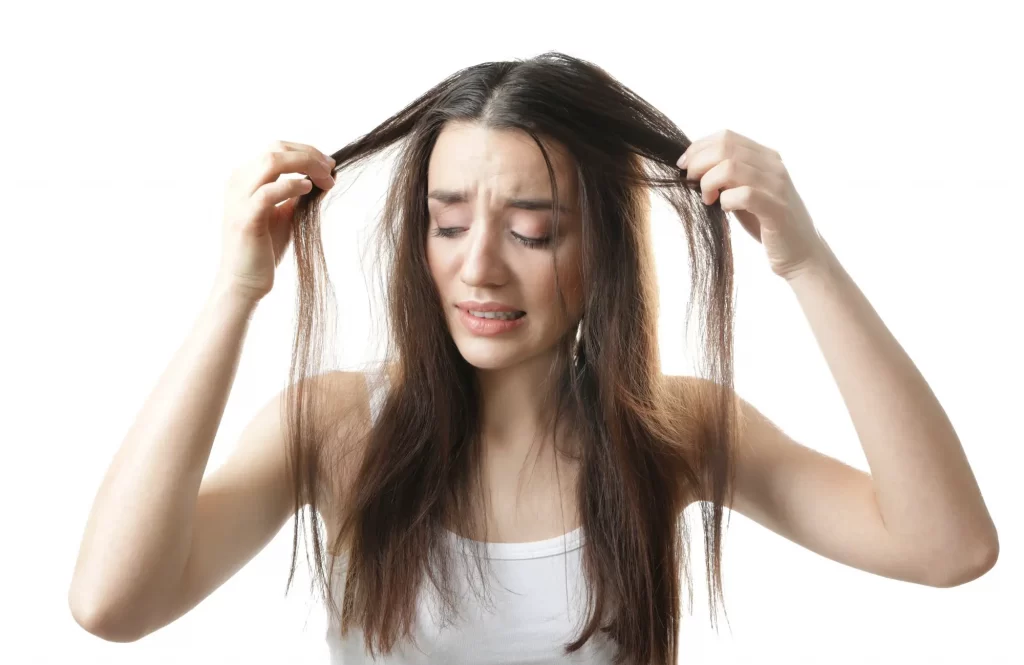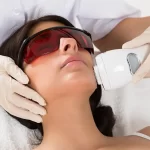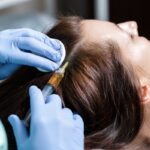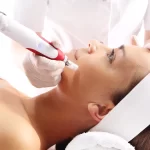
Introduction
Are you tired of dealing with hair fall and thinning? Do you long for your beautiful, luscious locks to return? Well, look no further! In this comprehensive blog post, we will explore various solutions for hair fall and thinning, helping you reclaim your beautiful hair and restore your confidence. From natural remedies to advanced treatments, we have got you covered. So let’s dive in and discover the secrets to healthier, stronger hair!
The Impact of Hair Fall and Thinning
Hair fall and thinning can significantly affect an individual’s self-esteem and confidence. It’s not just about losing hair; it’s about losing a part of your identity. Whether you are a man or a woman, the emotional impact can be equally distressing. Hair is often considered a symbol of youth, vitality, and attractiveness. So, it’s only natural to desire a full head of healthy hair. Let’s delve deeper into the causes of hair fall and thinning to understand the problem better.
Common Causes of Hair Fall and Thinning
Hair fall and thinning can be attributed to several factors. Understanding these causes can help us identify appropriate solutions. Here are some common culprits behind hair loss:
- Hormonal Imbalances
Hormonal imbalances, such as those caused by pregnancy, menopause, or thyroid disorders, can lead to hair fall and thinning. These imbalances disrupt the natural hair growth cycle, resulting in shedding.
- Nutritional Deficiencies
A diet lacking essential nutrients, particularly iron, biotin, zinc, and vitamins A, C, and E, can weaken hair follicles and cause hair fall. Incorporating a balanced diet is crucial for maintaining healthy hair.
- Stress and Anxiety
High-stress levels can wreak havoc on your hair. Stress-induced hair fall, known as telogen effluvium, occurs when a significant number of hair follicles enter a resting phase prematurely.
- Genetics
Genetic factors play a significant role in hair fall and thinning. If your family has a history of pattern baldness or thinning hair, you are more likely to experience similar issues.
- Hairstyling and Heat Damage
Excessive use of hairstyling tools, chemical treatments, tight hairstyles, and improper hair care routines can damage the hair shaft and lead to breakage and thinning.
- Medical Conditions and Medications
Certain medical conditions like alopecia areata, scalp infections, and side effects of medications can contribute to hair loss. Consulting a healthcare professional is advisable in such cases.
Now that we have a better understanding of the causes, let’s explore some effective solutions for hair fall and thinning.
Solutions for Hair Fall and Thinning
- Maintain a Nutrient-rich Diet
A well-balanced diet plays a vital role in promoting healthy hair growth. Ensure you consume foods rich in vitamins, minerals, proteins, and healthy fats. Some hair-friendly nutrients include:
- Iron: Found in spinach, lentils, and red meat.
- Biotin: Present in eggs, almonds, and avocados.
- Zinc: Obtained from oysters, nuts, and seeds.
- Vitamin A: Found in carrots, sweet potatoes, and kale.
- Vitamin C: Present in citrus fruits, strawberries, and bell peppers.
- Vitamin E: Obtained from almonds, sunflower seeds, and spinach.
- Regular Scalp Massage and Aromatherapy
Massaging your scalp with essential oils can improve blood circulation, stimulate hair follicles, and promote hair growth. Oils like rosemary, lavender, peppermint, and jojoba oil are known for their beneficial properties. Gently massage your scalp for a few minutes daily to reap the benefits.
- Avoid Heat and Chemical Damage
Excessive heat from styling tools can weaken hair and lead to breakage. Minimize the use of hair dryers, curling irons, and straighteners. Additionally, be cautious when using chemical treatments like dyes, relaxers, and perms. Opt for natural alternatives whenever possible.
- Practice Gentle Hair Care
Treat your hair with care by using a wide-toothed comb to detangle wet hair, avoiding harsh brushing. Be mindful of the shampoo and conditioner you use, opting for mild, sulfate-free products that nourish and strengthen your hair.
- Try Home Remedies
Nature provides us with several ingredients that can work wonders for hair health. Some popular home remedies include:
- Onion juice: Rich in sulfur, it promotes hair growth.
- Aloe vera: Soothes the scalp and strengthens hair follicles.
- Coconut oil: Deeply nourishes the hair, reducing breakage.
- Green tea rinse: Stimulates hair growth and adds shine.
- Consult a Professional
If home remedies and lifestyle changes don’t yield significant results, consider consulting a professional hairstylist or dermatologist. They can assess your condition and recommend suitable treatments, such as:
- Prescription medications: Oral or topical medications can aid in hair regrowth.
- Platelet-rich plasma (PRP) therapy: This procedure involves injecting concentrated platelets into the scalp to promote hair growth.
- Low-level laser therapy (LLLT): The use of specialized laser devices to stimulate hair follicles and enhance growth.
Remember, it’s essential to consult an expert before opting for any medical or clinical treatments.
FAQs
- Can stress cause hair fall?
Yes, stress can contribute to hair fall. High-stress levels disrupt the natural hair growth cycle and lead to shedding. Managing stress through relaxation techniques, exercise, and self-care can help mitigate its impact on hair health.
- Are there any quick fixes for hair fall?
While there are no overnight solutions for hair fall, you can try instant cosmetic fixes like volumizing shampoos, hair fibers, or concealers to give the appearance of thicker hair. However, it’s crucial to address the underlying causes for long-term results.
- Can I prevent hair fall through diet alone?
While a nutrient-rich diet is essential for healthy hair, addressing hair fall may require a comprehensive approach. Along with a balanced diet, incorporate other lifestyle changes and consider professional advice for effective management.
- Are hair fall and hair breakage the same?
Hair fall refers to the shedding of hair from the scalp, while hair breakage occurs when the hair shaft snaps or splits. Both issues can be present simultaneously or independently. Identifying the underlying cause helps determine the appropriate solution.
- Can hair fall be reversed?
The ability to reverse hair fall depends on the underlying cause and individual factors. With the right treatment, hair fall can be reduced, and regrowth can occur. Early intervention and consistent care yield better outcomes.
- How long does it take to see results from hair fall treatments?
The timeline for visible results varies based on the treatment and individual factors. Some treatments may show improvements in a few weeks, while others may require several months of consistent use. Patience and adherence to the prescribed regimen are essential.
Conclusion
Hair fall and thinning can be distressing, but with the right solutions, you can reclaim your beautiful hair. Start by addressing the underlying causes, making lifestyle changes, and incorporating hair-friendly practices into your routine. Remember to consult professionals when needed and be patient with the results. Embrace the journey of restoring your hair’s health and enjoy the renewed confidence that comes with it.




